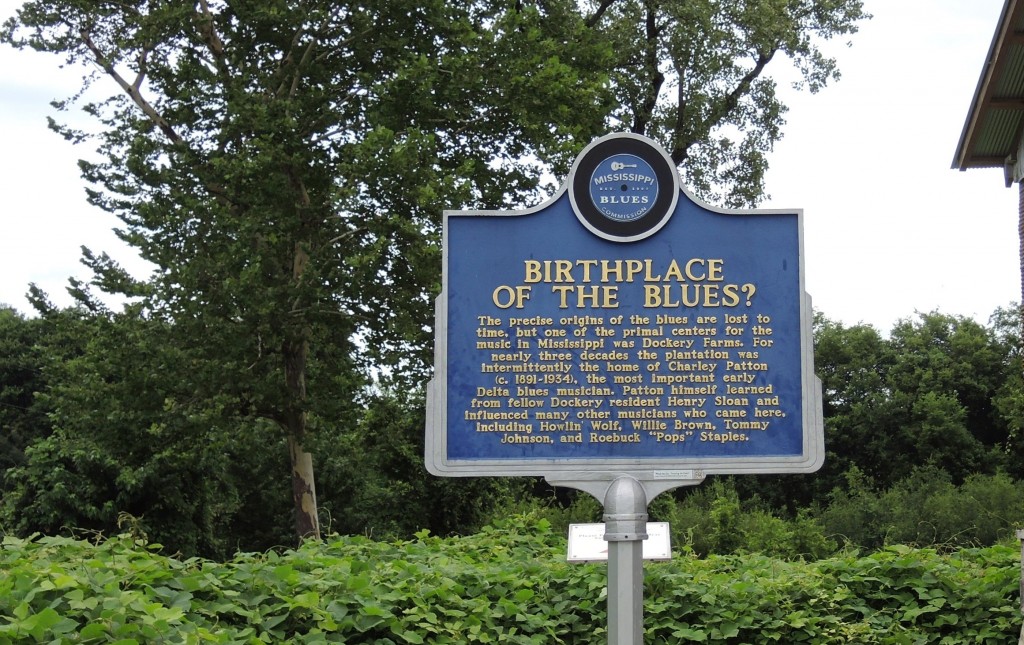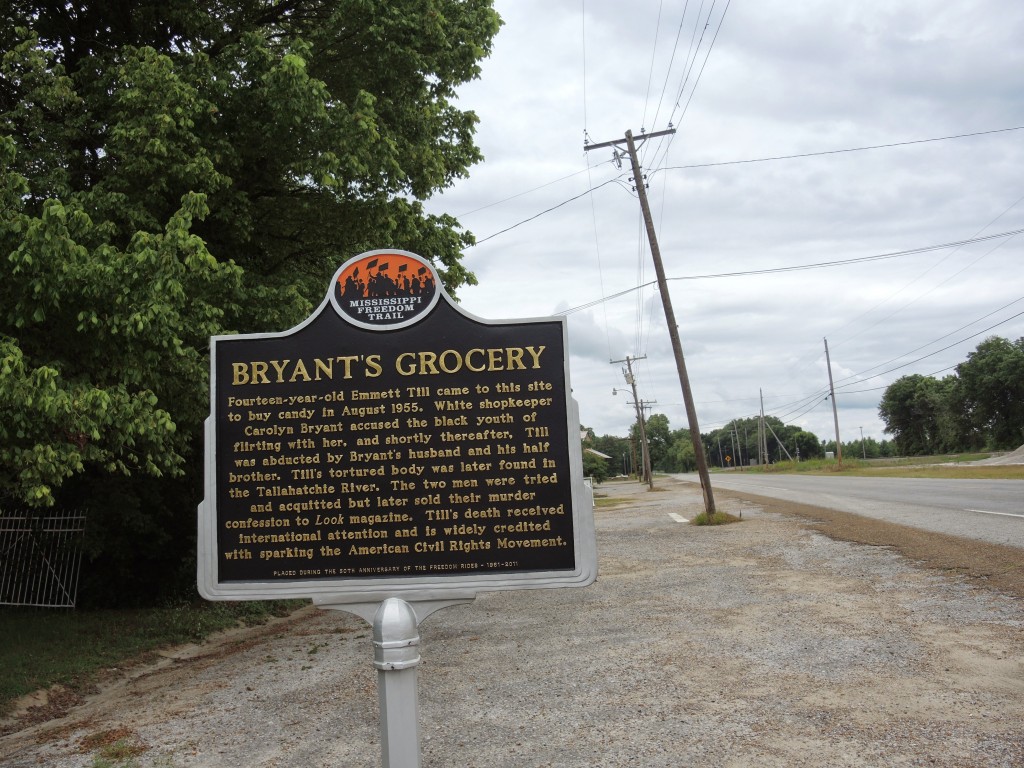I’ll start today’s entry with a lesson I learned as the day progressed: If you find yourself in the Mississippi Delta on a Sunday, make minimal plans and prepare alternatives to any plans you might have. You are as likely to find shops, restaurants, and clubs closed as you are to find them open.
I set out Sunday morning to visit the Great River Road Park which is in Rosedale between Clarksdale and Greenville. The park itself is notable for two features – the first being that it lies inside the Mississippi River levee. The second is a 75-foot-high overlook tower that should offer unique views of the river. According to the website of the Mississippi Department of Wildlife, Fisheries and Parks, the park is open every day but for daily use only. Since I’m not camping, I treated this message with a distinct lack of attention.
When I arrived at the park after a 40-mile drive, I received the first hint that there might be a small hitch in my planned visit. The entrance wasn’t staffed so no one was available to collect the required entrance fee. There was, however, a notice requesting that visitors adhere to the honor system by depositing the entry fee in a small box. A bit wary, I decided to honor the fee on my exit. The wisdom of this choice became clear when, 100 yards or so beyond the park entrance the road was blocked by a rope.
I learned later that this was not related to it being Sunday but rather that the park had essentially been closed since the flood of 2011. My informant also told me that many people simply park just inside the entrance and hop the rope. I’d thought of trying that but the swarms of various kinds of insects and my lack of knowledge of the interior of the park easily dissuaded me. However, she also indicated that the tower, which was the main attraction drawing me to the park, was in a state of questionable repair thus making a second attempt to visit the park on my way to Vicksburg on Monday unnecessary.
Following my aborted attempt to visit the Great River Road Park, I turned away from the river and headed 25 miles or so east toward Dockery Farms. When you reach there, you can spot this Mississippi Blues Trail Marker indicating the site’s importance. If you search the internet using the term Mississippi blues trail, you can find a website that guides you to hundreds of places in the state. (There are nearly 80 in the Delta Region alone.) Many of these places are simply the site of a blue historical marker like the one you see above. In the case of Dockery Farms, you get much more than a mere marker. A number of the plantation buildings have been left standing so you can gain some sense of what the place might have been like in the early twentieth century. Explore a bit further and you find a button you can press that generates a brief blues concert that should allow you to visualize and experience the scene even more vividly. This stop certainly brightened my morning.
If you search the internet using the term Mississippi blues trail, you can find a website that guides you to hundreds of places in the state. (There are nearly 80 in the Delta Region alone.) Many of these places are simply the site of a blue historical marker like the one you see above. In the case of Dockery Farms, you get much more than a mere marker. A number of the plantation buildings have been left standing so you can gain some sense of what the place might have been like in the early twentieth century. Explore a bit further and you find a button you can press that generates a brief blues concert that should allow you to visualize and experience the scene even more vividly. This stop certainly brightened my morning.
Perhaps because I am in some way distantly related to Alvy Singer, I frequently find myself compelled to balance moments of joy and pleasure with a more solemn counterweight. So it was that my next stop would be Money, Mississippi. For people of a certain age, the name of this place will immediately evoke a memory either vivid or vague. For those in the latter category, the memory may sharpen when I add the name of Bryant’s Grocery. The memory should become sharper still when I include the name Emmett Till. Those of you still unfamiliar with this American tragedy can read the marker at the site.
Little remains of the store itself. I have no idea when it was abandoned but it is now merely a shell of a building overgrown with weeds and a No Trespassing sign rather prominently displayed. I stood in this spot reflecting on not only the brutal murder of a 14-year-old boy but the acquittal of his killers nearly sixty years ago. I heard in my mind so many voices proclaiming progress in race relations in America. And while I know there is clear evidence of some progress, I also couldn’t keep from thinking about another murdered young African American boy, Trayvon Martin, whose slayer was also acquitted. I had to wonder how much farther we yet have to travel before so many of our societal interactions aren’t shrouded under a pall of racial issues. Although that thought would return to me later in the trip, the time came to move on.
Note: In keeping with my 2022-2023 reformation of the blog into shorter entries, backdated to maintain their sequence, any comments on this post might pertain to its new configuration. See the full explanation in the post Conventions and Conversions.

Thanks for the history lesson on Billy Joe McAlister.et. al…….amazing how images come to represent the reality even when not connected. Thinking of Mississippi (and the deep south in general) I always think of “As I Lay Dying” by Faulkner.
C
Wait until you read my next post!